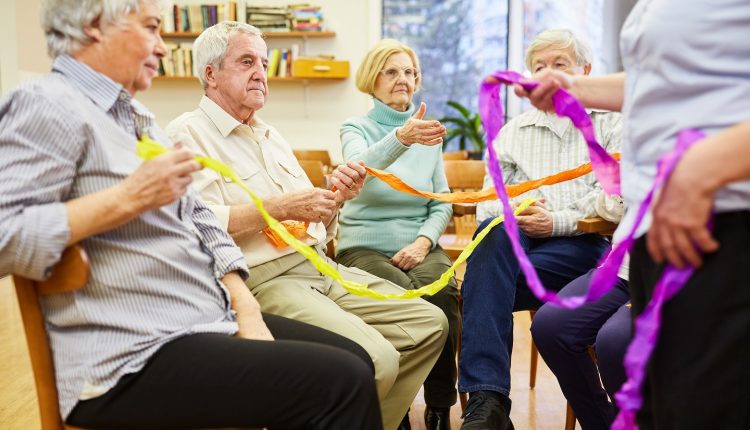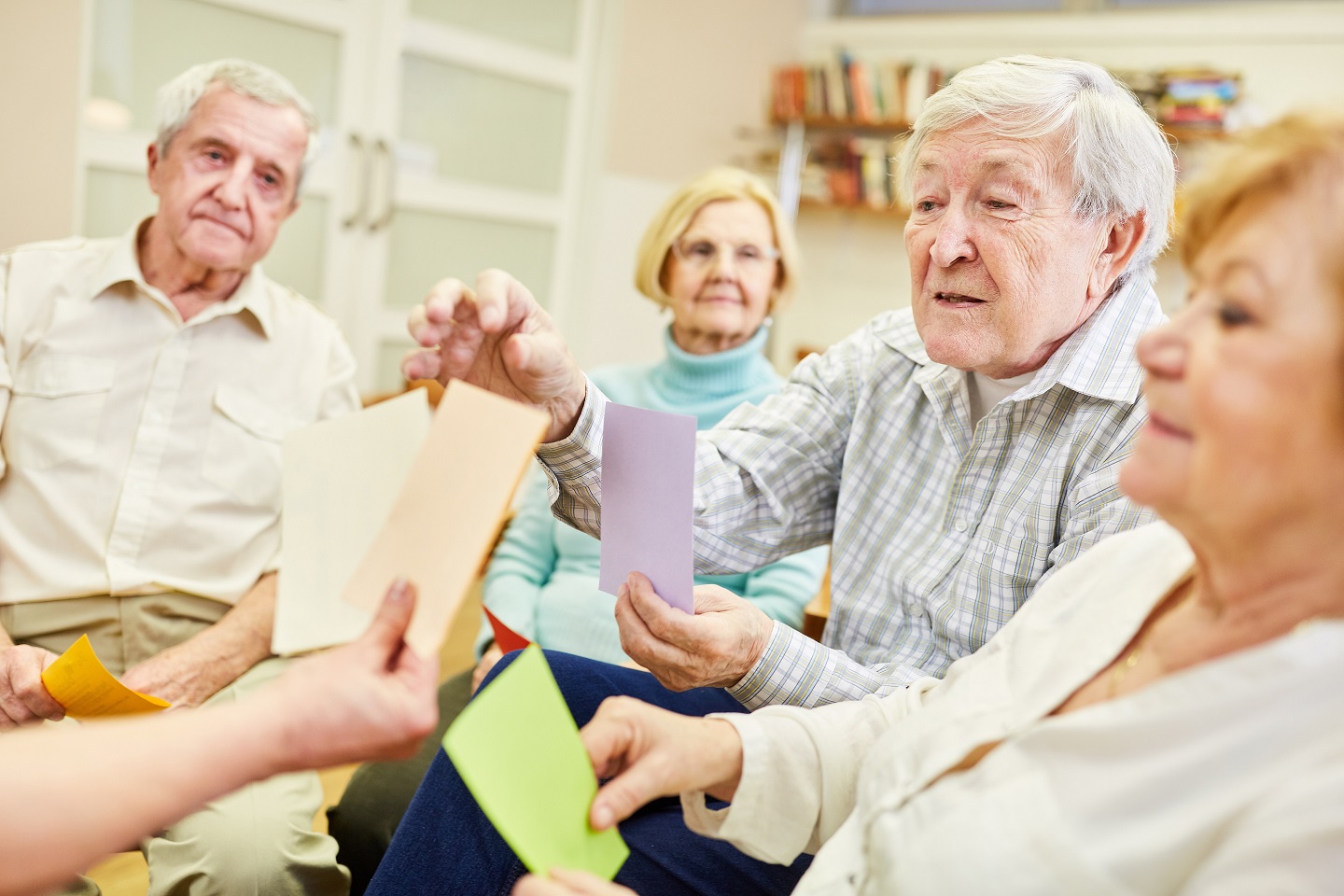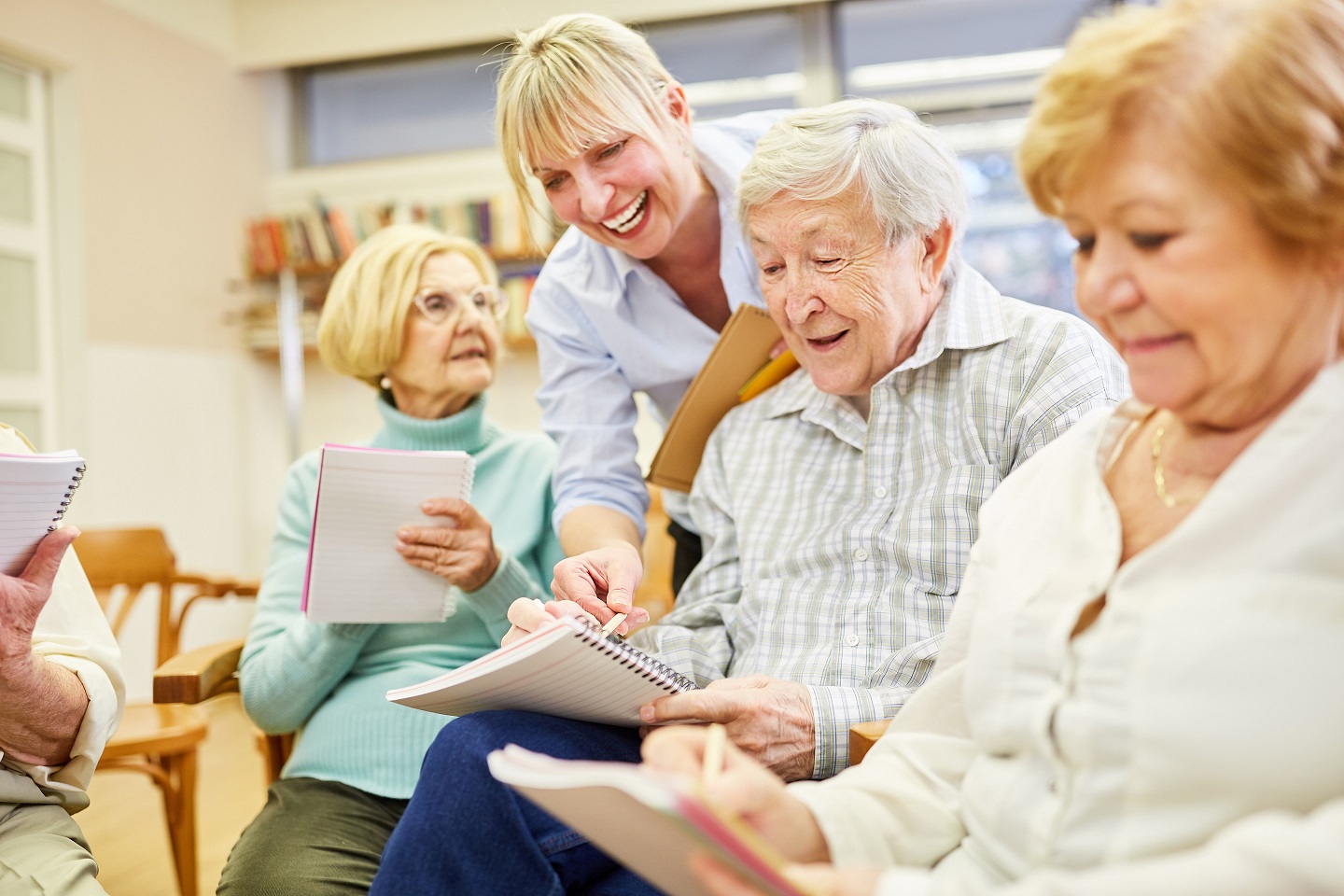
Group Brain Training: An Effective Way to Boost Cognitive Health
As we age, the cognitive decline becomes a common concern. Many individuals fear the onset of dementia, which can be debilitating and affect the overall quality of life. However, many ways exist to prevent or slow cognitive decline, including engaging in brain training programs. In recent years, group-based brain training programs have gained popularity as they offer socialization, engagement, and mental benefits. This article will explore the effectiveness of group-based brain training programs, such as group exercise classes or social games, for improving cognitive function and reducing dementia risk.
Read more: The Most Popular Games of All Times for Seniors.
Contents
What is Group-Based Brain Training?
Group-based brain training refers to cognitive training programs conducted in a group setting. These programs typically involve various activities, including group exercise classes, social games, and mental training exercises. These programs improve cognitive function and provide socialization and engagement opportunities. The programs are often targeted toward older adults at a higher risk of cognitive decline and dementia.

The Benefits of Group-Based Cognitive Training Programs
Group-based brain training programs offer several benefits for cognitive function and overall health. One of the primary benefits is improved cognitive function. Studies have shown that group-based cognitive training programs can improve memory, attention, and executive function, which are crucial for maintaining mental health. Additionally, these programs can improve mood and overall well-being as they offer opportunities for socialization and engagement.
Another benefit is the potential to reduce the risk of dementia. Several studies have found that engagement in cognitive activities, such as those offered in group-based brain training programs, can reduce the risk of dementia. For example, a study published in the Journal of the American Medical Association found that engagement in cognitive activities, such as group-based brain training, reduced the risk of dementia by 63%.
Types of Group-Based Brain Training Programs
Several group-based cognitive training programs are available, including group exercise classes and social games. Group exercise classes, such as yoga, Tai Chi, or dance classes, offer physical and cognitive benefits. These classes improve balance, flexibility, and strength while improving cognitive function. Social games like bridge or bingo offer socialization and engagement opportunities while providing cognitive stimulation.
A group setting is also an option for cognitive training. These programs typically involve computer-based exercises or puzzles designed to improve cognitive function. While these programs may not offer the socialization and engagement benefits of group exercise classes or social games, they can effectively enhance cognitive function.
Effectiveness of Group-Based Training
Several studies have examined the effectiveness of group-based brain training programs for improving cognitive function and reducing dementia risk. Overall, the results have been positive, with many studies finding significant improvements in cognitive function and reductions in dementia risk.
For example, a study published in Frontiers in Aging Neuroscience found that participation in a group exercise program, such as Tai Chi or dance, improved cognitive function in older adults with mild cognitive impairment. Another study published in the journal Neuropsychology found that participation in a group cognitive training program improved memory and attention in older adults.
Regarding dementia risk reduction, a study published in the Journal of Alzheimer’s Disease found that engagement in cognitive activities, such as those offered in group-based brain training programs, reduced the risk of dementia in older adults. Similarly, a study published in the Journal of Gerontology found that participation in a cognitive training program reduced the risk of dementia by 29% in older adults.

Challenges and Considerations
While group-based training programs offer many benefits, some challenges and considerations must be remembered. One challenge is ensuring the programs are accessible and inclusive for all participants. This may require modifications to accommodate individuals with physical or cognitive limitations.
Another consideration is the need for ongoing engagement and participation. Group-based training programs are most effective when participants engage in the programs consistently over time. Encouraging continued participation may require creative approaches, such as offering incentives or finding ways to keep the programs engaging and fun.
In addition, group-based brain training is not a standalone solution for cognitive health. Keeping cognitive function and reducing dementia risk also depends on healthy eating and regular exercise.
Final Words
Group-based brain training programs, such as group exercise classes or social games, offer many benefits for cognitive function and overall health. These programs provide socialization and engagement opportunities and cognitive benefits, making them an attractive option for many individuals. Studies have shown that participation in group-based training programs may reduce dementia risk and improve cognitive function. In spite of some challenges, these programs are promising for maintaining cognitive health as we age.
Thanks for your helpful information. However, I don’t think brain training can be practical for everyone.
How come?
Some people get nervous talking to others, let alone doing group activities that includee thinking and desiosion making.
Do these programs only work to reduce the risk of dementia, or can they reverse the condition?
How can I find a social club to start playing group games?